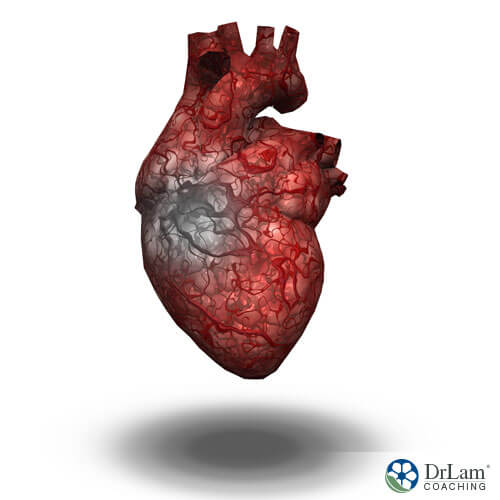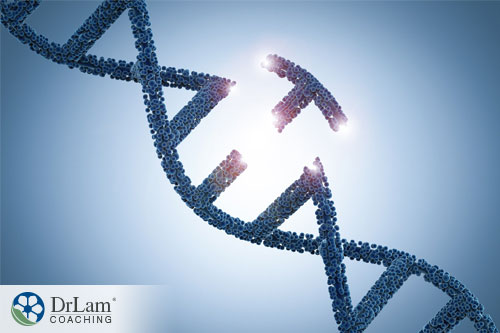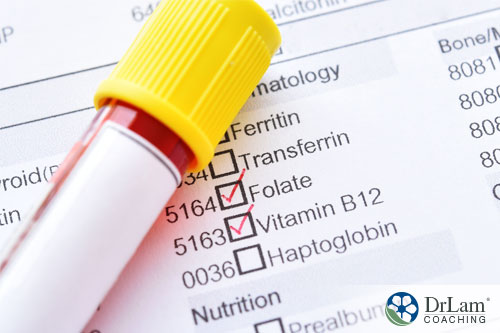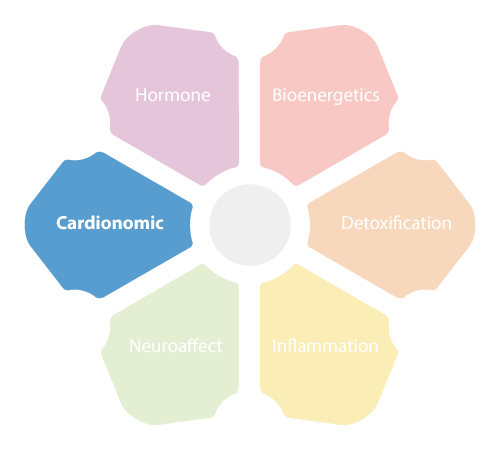 Many people suffer from cardiovascular diseases that are caused by something they have never heard of. Too high levels of this amino acid have been connected to premature death. Research has linked elevated homocysteine levels to many preventable health issues. Although in some cases elevated homocysteine levels are genetic, chances are that they are being caused by a controllable vitamin deficiency. There are no outward symptoms of homocysteine imbalances, so they often go unnoticed, but they can cause a lot of harm to the body in the long run.
Many people suffer from cardiovascular diseases that are caused by something they have never heard of. Too high levels of this amino acid have been connected to premature death. Research has linked elevated homocysteine levels to many preventable health issues. Although in some cases elevated homocysteine levels are genetic, chances are that they are being caused by a controllable vitamin deficiency. There are no outward symptoms of homocysteine imbalances, so they often go unnoticed, but they can cause a lot of harm to the body in the long run.
Homocysteine is an amino acid produced in the body and found in the blood. Amino acids are the building blocks of proteins which play a crucial role in almost all biological processes. A large proportion of the body, including the cells, muscles, and tissue, is made up of amino acids. They carry out many important bodily functions and give cells their structure. Amino acids influence the function of the organs, glands, tendons, and arteries, and are essential for healing and repair. They also aid in waste removal in connection with the metabolism. Although they are of vital importance to the body’s wellness, high levels of the amino acid homocysteine can be potentially dangerous.
Elevated homocysteine levels, also known as hyperhomocysteinemia, are now being linked to many cardiovascular ailments such as arterial damage and blood clots. Elevated homocysteine usually indicates a deficiency of either the vitamin B12 or folate. It tends to be highest in people who eat large amounts of protein with very few fruits and vegetables, which usually provide the bulk of the vitamins needed to manage the body’s levels of homocysteine.
The normal level of homocysteine in the blood is less than 15 micromoles per liter (mcmol/L) of blood. Elevated homocysteine levels are split into three categories:
High levels of homocysteine are linked to many health ailments but most prominently cardiovascular diseases. In fact, elevated homocysteine levels, with low levels of vitamins B6, B12, and folate, are a known risk factor for both heart and renal disease. Recent studies have shown that high homocysteine levels can lead to premature death for a variety of reasons including:
In addition, some evidence suggests that people with elevated homocysteine levels have twice the normal risk of developing Alzheimer’s disease.
 There are quite a few factors that can cause an elevation in your homocysteine levels. Genetics can affect how the body absorbs and uses folic acid which can lead to higher levels of the amino acid. Elevated homocysteine levels can also arise from a methylenetetrahydrofolate reductase, or MTHFR, genetic defect. MTHFR is responsible for converting homocysteine to methionine. With a MTHFR genetic mutation, the MTHFR enzyme functions incorrectly and a buildup of homocysteine levels occur. With these cases, the intake of folic acid can be supplemented to provide higher than the recommended daily allowance.
There are quite a few factors that can cause an elevation in your homocysteine levels. Genetics can affect how the body absorbs and uses folic acid which can lead to higher levels of the amino acid. Elevated homocysteine levels can also arise from a methylenetetrahydrofolate reductase, or MTHFR, genetic defect. MTHFR is responsible for converting homocysteine to methionine. With a MTHFR genetic mutation, the MTHFR enzyme functions incorrectly and a buildup of homocysteine levels occur. With these cases, the intake of folic acid can be supplemented to provide higher than the recommended daily allowance.
Other contributing factors to an elevation of homocysteine include:
Upon finding out that you have elevated homocysteine, it is important to find the source and proactively take measures to decrease the amount of this amino acid found in your system. Finding out why the body is not properly managing its homocysteine levels is crucial for optimal health.
Increasing evidence links elevated homocysteine levels with higher mortality rates. At the University of Bergen, a study was conducted with over 2000 men and 2500 women, ages 65 to 67 years. After 5 years, the study showed that for every 5.0 micromol/L increase in homocysteine levels above the baseline level (9.0 micromol/L), mortality from all causes of death increased by 49%, cardiovascular mortality by 50%, cancer mortality by 26%, and deaths from other causes including respiratory, gastrointestinal, and central nervous system diseases, by 104%. About 78% of the study group had homocysteine levels at or above 9.0 micromol/L, and 12% had levels exceeding 15 micromol/L.
These alarming results also took into consideration other health factors and adjusted for age, gender, body weight, height, cholesterol levels, blood pressure, smoking, physical activity levels, and cardiovascular disease risk status at baseline.
Those in the study who smoked and drank coffee seemed to have the highest levels of homocysteine, while those practicing a healthy lifestyle had the lowest.
There are no symptoms of elevated homocysteine levels, but it is important to know if this is a problem for you. If you are genetically predisposed or suspect you have elevated homocysteine, you may want to undergo a low-cost test that could, in turn, help you prevent a multitude of ailments. Speaking to your health care practitioner is always a good idea as well.
 Homocysteine levels are checked through blood tests. A physician may order a test if a patient has a family history of heart disease or if a vitamin deficiency has been suspected. B vitamin deficiency is closely associated with homocysteine issues.
Homocysteine levels are checked through blood tests. A physician may order a test if a patient has a family history of heart disease or if a vitamin deficiency has been suspected. B vitamin deficiency is closely associated with homocysteine issues.
Symptoms of a vitamin B-12 deficiency include:
Symptoms of a folate deficiency are often subtle and are similar to those of a B-12 deficiency. They include:
Symptoms of vitamin deficiency anemia overlap with those of B-12 and folate deficiencies, also including:
Testing for elevated homocysteine levels is not routine practice. They are not widely available, but they should be considering their ability to mark risk factors for certain diseases. They typically cost about $100 and may not be covered by health insurance.
Fortunately, for everyone, homocysteine levels can often, but not always, be safely and effectively lowered naturally by daily supplementation with:
Self-navigation is not recommended. The required dosage varies from person to person and close follow up by a knowledgeable healthcare provider is important for maximum benefit.
If you do not wish to take nutritional supplements, then it is important to follow a diet that can give you similar results. The richest food sources of folate are green vegetables, orange juice, and beans. Consulting with a nutritionist to ensure you meet your daily nutritional needs is always a wise decision. With folic acid and vitamin B being relatively inexpensive supplements, if your diet is less than ideal, you should consider taking these nutrients as additional insurance for your health.
In addition to nutritional supplementation, it is also important to decrease stress levels. To reduce stress, practice breathing exercises, meditation, and mind-body exercises such as yoga on a daily basis.
Reducing foods that are high in animal protein can also help lower homocysteine levels. For optimum health, following an anti-inflammatory diet, such as the adrenal fatigue diet, which limits total animal protein intake and emphasizes protein sources such as fish, beans, fermented soy, and dairy products.
 An imbalance in the body at any level can lead to many dangerous ailments. When homocysteine levels are elevated, then the entire NeuroEndoMetabolic (NEM) Stress Response system can be affected. The NEM stress response is the body’s overall strategy for handling mental, emotional, and physical stress. It consists of six circuits including the cardionomic, the hormonal, the metabolic, the neuroaffect, the inflammatory, and the detox responses.
An imbalance in the body at any level can lead to many dangerous ailments. When homocysteine levels are elevated, then the entire NeuroEndoMetabolic (NEM) Stress Response system can be affected. The NEM stress response is the body’s overall strategy for handling mental, emotional, and physical stress. It consists of six circuits including the cardionomic, the hormonal, the metabolic, the neuroaffect, the inflammatory, and the detox responses.
The cardionomic circuit is the one most affected by elevated homocysteine levels. It readies the heart, blood vessels, and lungs to receive more oxygenated blood for a fight-or-flight stress response. The cardionomic stress response can lead to high blood pressure, heart palpitations, cardiac arrhythmia, dizziness, and shortness of breath, and in more advanced stages, there can be a development of atrial fibrillation and postural orthostatic tachycardia syndrome.
If this continues, the heart’s functions can be compromised. And if elevated levels of homocysteine accompany these issues, damage to the cardiovascular system is likely. Remember that homocysteine is an indicator of oxidative stress. The higher the number, the higher your risk of cardiac blockage.
When there is excessive use of the fight or flight response, a lot of stress is put on the body and the heart. In addition, with a continuous and heavy workload, the adrenal glands become weakened from attempting to neutralize stress, leading to Adrenal Fatigue Syndrome, or AFS. Adrenal fatigue is a stress-induced chronic condition that can cause symptoms such as tiredness, sleep disturbance, weight gain, and brain fog. It is imperative for optimal cardiac health that you lower your levels of homocysteine to ensure that your NEM system and your adrenal glands are in balance and functioning properly.
The lesson is simple: lower your level of homocysteine, or face the risk of premature death. Your heart and overall health are depending on you to make the proper choices in diet and lifestyle. However, it is important that you do not make changes to your meal plans without proper supervision, especially if it's your heart that is at risk. If you suffer from AFS, you will need to be careful with supplementation, including the recommended supplements that help lower elevated homocysteine levels. Many chronic illnesses such as AFS put the body in an overly sensitive state which cannot properly digest certain foods or absorb nutrients. Obtaining the professional opinion of a qualified specialist is a good first step in reducing your homocysteine levels.
© Copyright 2012-2019 Michael Lam, M.D. All Rights Reserved.
Yes, elevated homocysteine levels can affect every system in the body. AFS sufferers should be cautious as this issue can magnify internal injuries and weakened adrenals. If your doctor approves, AFS sufferers should follow a diet high in fruits and vegetables, and low in animal proteins.
